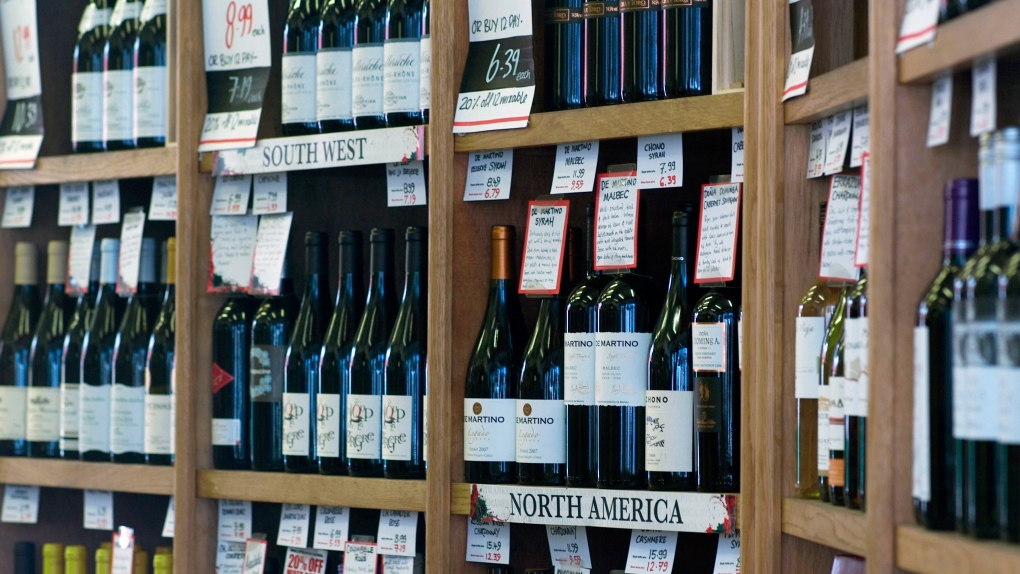
'He's in our hearts': Family and friends still seek answers one year after Nathan Wise’s disappearance
It’s been a year since Nathan Wise went missing and his family is no closer to finding out what happened to him.
A new study conducted by the University of Cambridge suggests an increase of non-alcoholic drinks on sale online may reduce the amount of alcohol people buy.
Researchers studied 737 regular alcohol buyers in England and Wales using a simulated online supermarket. Of these, over 600 completed the study.
“We created our simulated supermarket to be as close as possible to an actual online supermarket and found that increasing the proportion of non-alcoholic drinks that shoppers were exposed to made a meaningful difference to their alcohol selection,” the study’s lead author Natasha Clarke said. “Though we’d need to confirm these findings using only a real online supermarket, they are very promising.”
Participants were split into three groups and given 64 options to choose from including a range of beers, ciders, alcohol-free beer, cider alternatives and soft drinks.
Each group was presented with a different proportion of alcoholic and non-alcoholic drinks.
The first group was given a selection of drinks, of which 25 per cent were non-alcoholic. For the second group, that proportion increased to 50 per cent, and for the third group, 75 per cent.
Researchers found the third group—where participants were shown the highest proportion of non-alcoholic drinks—chose alcoholic drinks 52 per cent of the time. Meanwhile, in the first group, 70 per cent of the drinks that were chosen were alcoholic beverages.
“Supermarkets typically stock a wider range of alcoholic drinks than non-alcoholic alternatives aimed at adults, but this is slowly changing,” the study’s senior author Gareth Hollands said. “Our results suggest that if non-alcoholic options were to become the majority instead, we might expect to see substantial reductions in alcohol purchasing.”
Researchers warn people that excessive alcohol consumption is a major risk for a number of diseases, including cancer, heart disease and stroke.
“We all know that drinking too much alcohol is bad for us, but we’re often unaware of how much we are influenced by the environment around us.” Dame Theresa Marteau, director of the Behaviour and Health Research Unit at the University of Cambridge said.
“Making changes to this environment – from exposing people to a greater proportion of healthier options through to changing the sizes of the utensils we eat and drink from – can help us cut down on potentially unhealthy habits. Even relatively small changes can make a difference both to individuals and at a population level.”

It’s been a year since Nathan Wise went missing and his family is no closer to finding out what happened to him.
Dozens of Ontarians are expressing frustration in the province’s health-care system after their family doctors either dropped them as patients or threatened to after they sought urgent care elsewhere.
An Ottawa pizzeria is being recognized as one of the top 20 deep-dish pizzas in the world.
Amazon's paid subscription service provides free delivery for online shopping across Canada except for remote locations, the company said in an email. While customers in Iqaluit qualify for the offer, all other communities in Nunavut are excluded.
The fire burning near Fort McMurray grew from 25 hectares to 5,500 hectares over the weekend.
Russia’s President Vladimir Putin began a Cabinet shakeup on Sunday, proposing the replacement of Sergei Shoigu as defence minister as he begins his fifth term in office.
Police are searching for a male suspect after a man was “slashed in neck” on Sunday morning in downtown Toronto and died.
There were some scary moments for several people on a northern Ontario highway caught on video Thursday after a chain reaction following a truck fire.
Health Canada announced various product recalls this week, including electric adapters, armchairs, cannabis edibles and vehicle components.

English, history, entertainment, math and geography: high school trivia teams could be quizzed on any of it when they compete at the Reach for the Top Nationals in Ottawa in June.
An Ottawa pizzeria is being recognized as one of the top 20 deep-dish pizzas in the world.
A family of fifth generation farmers from Ituna, Sask. are trying to find answers after discovering several strange objects lying on their land.
A Listowel, Ont. man, drafted by the Hamilton Tigercats last week, is also getting looks from the NFL, despite only playing 27 games of football in his life.
The threat of zebra mussels has prompted the federal government to temporarily ban watercraft from a Manitoba lake popular with tourists.
A small Ajax dessert shop that recently received a glowing review from celebrity food critic Keith Lee is being forced to move after a zoning complaint was made following the social media influencer’s visit last month.
The Canada Science and Technology Museum is inviting visitors to explore their poop. A new exhibition opens at the Ottawa museum on Friday called, 'Oh Crap! Rethinking human waste.'
The Regina Police Service says it is the first in Saskatchewan and possibly Canada to implement new technology in its detention facility that will offer real-time monitoring of detainees’ vital health metrics.
Just as she had feared, a restaurant owner from eastern Quebec who visited Montreal had her SUV stolen, but says it was all thanks to the kindness of strangers on the internet — not the police — that she got it back.
 Bottles of wine are seen in a wine shop in central London, Monday, March 16, 2009. (AP Photo/Sang Tan)
Bottles of wine are seen in a wine shop in central London, Monday, March 16, 2009. (AP Photo/Sang Tan)